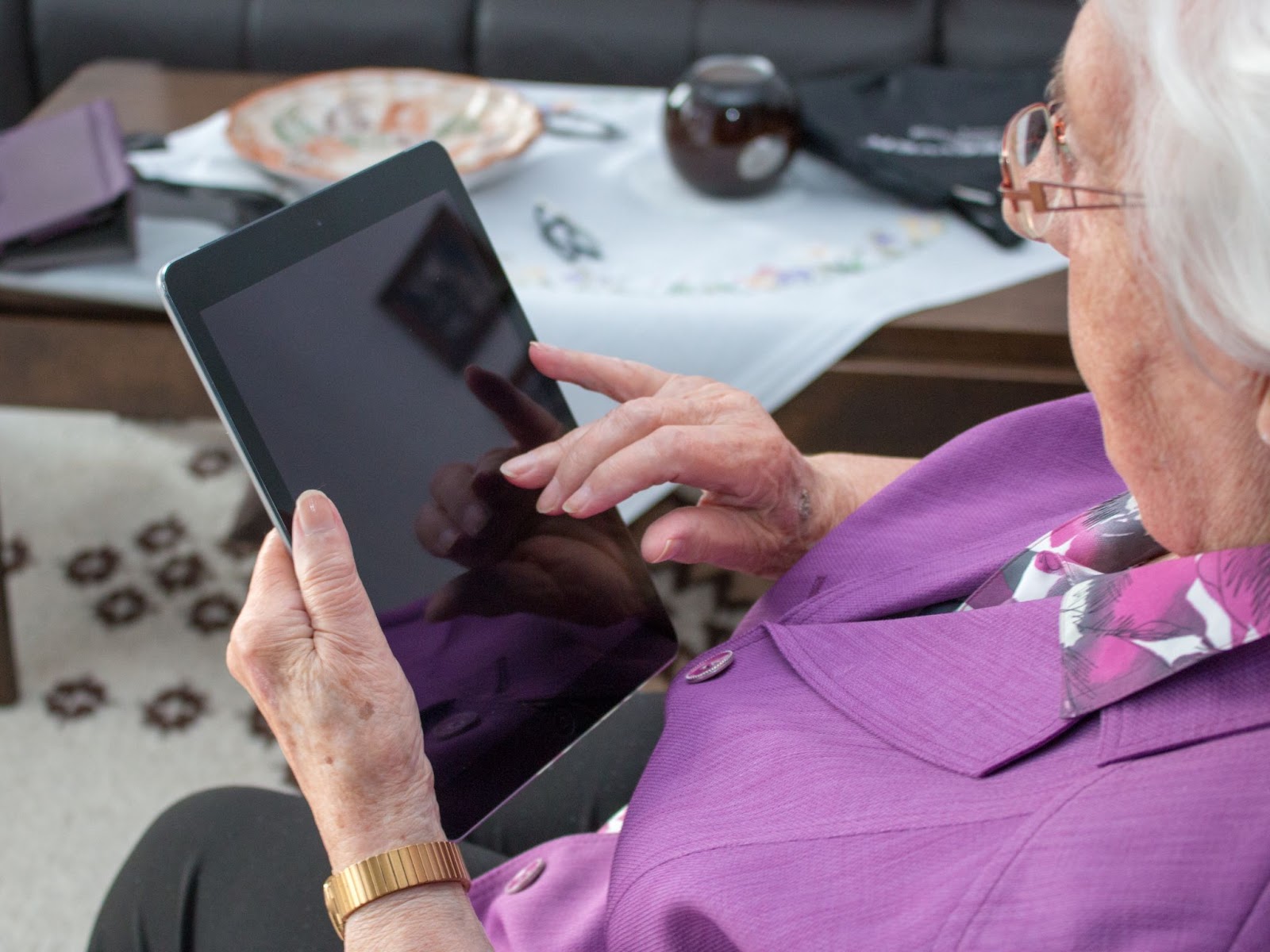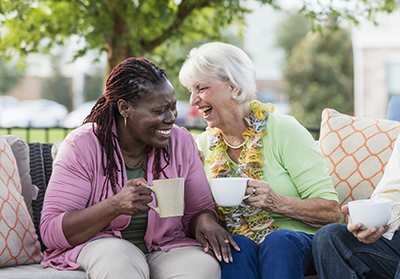Older Adult Services · July 25, 2021
Jewish Family Service is ramping up a new program to help isolated older adult community members stay connected to the community virtually. Nicholas Rackers is the new Virtual Programs Engagement Specialist at JFS. He is overseeing a program that provides technology and training to older adult community members so they can better engage with JFS’s online programming and connect with their families and friends.
Older Adult Services · March 15, 2021
Isolation is as bad for you as smoking 15 cigarettes a day. Lonely people are 50 percent more likely to die earlier than those with healthy social relationships. Data from the Health Resources & Services Administration shows more than 3.4 million people struggle with social isolation, loneliness, and living alone—and that was before the onset of COVID-19. More recent numbers show loneliness and social isolation have increased 20 to 30 percent, and emotional distress has tripled during COVID.
Holocaust Survivors · February 05, 2021
“Holocaust survivors are our teachers and our heroes,” said Mark Wilf, the chair of The Jewish Federations of North America’s (JFNA) board of trustees. “With inspiring strength and conviction, they teach us about the past. Now, they are teaching us how to better serve all older adults who have survived trauma.”
JFNA’s Center on Aging and Trauma, a project of the Holocaust Survivor Initiative, has just awarded Jewish Family Service a one-year, $66,666 grant.
Giving & Volunteering · April 28, 2020
The COVID-19 pandemic has been stressful and unsettling for many people, but it has been particularly challenging for those already suffering from food insecurity. Recently, dozens of determined Jewish Family Service (JFS) volunteers and staff spent time preparing for and participating in the in the 22nd annual Dr. Samuel S. Rockwern Passover Delivery Project of Jewish Family Service. Perhaps inspired by a desire to fulfill a mitzvah (commandment), the dedicated individuals helping with this
Education & Learning · April 22, 2020
Seven students gather for their weekly ESOL—English for Speakers of Other Languages—class. Jewish Family Service (JFS) has hosted the class for Russian speakers every Monday at the Mayerson JCC for years, but the stay-at-home order due to the COVID-19 outbreak changed the routine, and many were left to wonder what was going to become of the class.
Health & Wellness · April 17, 2020
In this unprecedented time that we find ourselves living today, the challenges are great, and our ability to cope is compromised. We want to provide some ideas to help guide us through these next few weeks knowing it can’t last forever.
Crisis Intervention · April 07, 2020
It is usually counterintuitive to depict the home as an unsafe space. People generally associate home with comfort, quarantine with safety from outside elements. Now more than ever, we are being encouraged to stay at home and avoid outside exposure. The experience of stress that family members report when being confined together for extended amounts of time typically falls within normal range. But for victims of domestic abuse, the experience of being quarantined with their abusive partner poses
Food & Financial Assistance · March 31, 2020
Jewish Family Service Heldman Family Food Pantry will remain open during this time of social distancing, so everyone who needs groceries can get them.
And they are staying safe: “We really want to reassure the community that we are working hard to ensure the safety of our professionals and volunteers,” said Liz Vogel, CEO at Jewish Family Service, which is funded by the Jewish Federation of Cincinnati.








